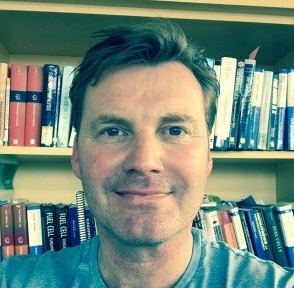Electrified Solid-Liquid Interfaces – The Dark Side of Solar Fuels and Chemicals
 Speaker: Professor Peter Strasser
Speaker: Professor Peter Strasser Affiliation: Department of Chemistry, Technical University Berlin, Berlin, Germany
Host: Assistant Prof He Qian
Abstract Details:
The rising share of renewable electricity is testament to the increasing importance of solar-electric routes – largely photo-absorption or Faradaic induction - to harvest sun light directly or indirectly in form of electric potential differences and free electrons. While some electricity is used directly or stored capacitively, an increasing portion calls for direct conversion into valuable molecular solar fuels or chemicals. This conversion in the dark is made possible by heterogeneous electrocatalysis on the surface of solid electrodes. Electrocatalysis at the electrode surface orchestrates the stepwise making or breaking of molecular chemical bonds by means of electronic charge transfer across the electrified solid electrode/electrolyte interface. Kinetic barriers of elementary reaction steps – associated with suboptimal chemisorption or stabilization of intermediates - control the efficiency of the overall reaction process. Fundamental understanding of the origin of the kinetic barriers arising along the reaction coordinate aids in the design of more efficient, tailor-made electrochemical interfaces.
In this presentation, Prof Strasser will report on recent experiments, conclusions, as well as unresolved issues that advance our fundamental understanding of “dark” electrocatalytic materials, interfaces and mechanisms relevant to the generation of value-added molecular chemical compounds from electricity. Approaches involve idealized three-electrode set ups as well as electrolysis cells coupled to spectroscopic, microscopic, scattering or spectrometric analysis techniques.
About The Speaker:
Peter Strasser studied chemistry at the University of Tübingen, Germany, at Stanford University and at the University of Pisa and obtained his “Diploma” degree in General Chemistry in 1995. He conducted his doctoral research under the direction of Gerhard Ertl, and obtained his PhD in “Physical Chemistry and Electrochemistry” from the ‘Fritz-Haber-Institute of the Max-Planck-Society’ and the Free University in Berlin. He joined “Symyx Technologies Inc.”, a company in Silicon Valley pioneering Combinatorial and High Throughput Discovery of catalytic materials, in 2000 as a postdoctoral associate and was later promoted to Senior Member of staff and served as project/group leader in Electrocatalysis and Heterogeneous Catalysis. In 2004, he assumed the position of Assistant Professor at the Department of Chemical and Biomolecular Engineering at the University of Houston, before he became the chaired professor of “Electrochemistry and Electrocatalysis” in the Chemical Engineering Division of the Department of Chemistry at the Technical University Berlin. He is a Visiting Professor at the Department of Material Science at Tongji University, China.
Peter Strasser has received awards and honors such as the European Fuel Cell Forum (EFCF) Christian Schönbein Gold Medal (2021), the Royal Society of Chemistry (RSC) Faraday Medal (2021),the ISE Brian Conway Prize in Physical Electrochemistry (2020), The Nature publishing award (2018), the IAHE Sir William Grove award in hydrogen research (2018), the Otto-Roelen Medal in Catalysis by the German Catalysis Society (2016), the Ertl Prize (2016), as well as the Otto-Hahn Research Medal by the Max-Planck Society (2000). Since 2018, he is continuously listed on the list of 1% of “Highly Cited Researchers” worldwide.
Peter Strasser is a named inventor on 15 U.S. and European patents. He has presented more than 200 invited lectures or seminars at various academic, industrial, and governmental organizations or conferences around the world. He has authored or co-authored more than 350 scientific papers that have appeared in refereed journals, as well as the textbook High-Throughput Screening in Chemical Catalysis Concepts, Strategies and Applications, Wiley-VCH, New York. All these publications are related to various aspects of surface electrochemistry and catalysis.
Peter Strasser’s entrepreneurial activities include roles of academic mentor for Start-up companies such as “DexLeChem” (http://www.dexlechem.com/home_en) and “Liquid Loop Spectrometry” (https://www.liquidloop-spectrometry.de), which commercialize technology developed at the Department of chemistry at TU Berlin.
Discussion moderators : Assistant Prof He Qian (Host, NUS), Prof Andrew Wong, Prof Wang Lei
This webinar is over. You may watch the recorded video in our YouTube page at https://youtu.be/CVSRjCX7J70
—
To view all the upcoming seminars, you can visit: https://graphene.nus.edu.sg/news-events/events/
You may also Like & Subscribe our following channels below to receive instant notifications for new announcements.
